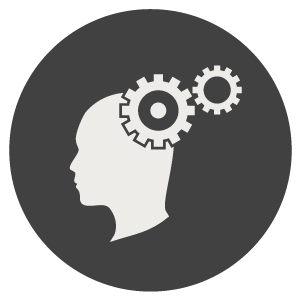Setting Boundaries Around Media Consumption
As we are experiencing a global pandemic, a critical election in the United States, and other political, humanitarian, and climate change events and crises, I think it is safe to say that there is a barrage of information on the regular. We live in a world where we are always connected, and can easily feel overwhelmed by the volume of information flowing in from social media and news sources. A great way to think about this information overload, is relating it to the food we eat. Too much food can make us feel unwell, but a balanced diet can help us feel nourished. So with everything going on and with all the information on our feeds, how do we create that balanced diet? The answer lies in setting boundaries.
Boundaries are Important
Boundaries help us define our limits and allow us to take back control of our time. So what are some ways that you can set Boundaries? Check out some tips below.
1. Set a timer for different apps or news sources
Our apps and news sources can sometimes be a time warp. Once we are tuned in, we lose track of time. A great way to set a boundary is by limiting our interaction. What is a reasonable amount of time to spend per day plugged in to social media and news outlets? You decide and stick to that time limit. Struggling to set that limit? There are built in features for most phones that allow you to monitor your time, as well as a variety of apps that allow you to customize time limits (Breakfree, DinnerMode, RealizD, Space, AntiSocial).
2. Be selective
We are all individuals with different views, thoughts, ideas, and opinions, which means that sometimes we just don’t see eye to eye or agree, and that is okay. Is someone's posts really bothering you and affecting your mood and mental health? Silence, unfollow, or block those individuals to give yourself some space.
3. Unplug
Sometimes it can feel like we have to constantly check our phones. Giving ourselves the permission to unplug and/or step away entirely can help us reevaluate our relationship with social media and when we do decide to plug back-in, set boundaries for ourselves. Unplugging can include deleting apps for varying amounts of time, setting your phone aside during a meal time, a walk, or watching a movie. Explore what works best for you.
4. Fact Check
As the fake news epidemic is upon us, be selective of what you choose to believe, and what you allow to influence your beliefs and opinions. A lot of content on social media is biased, and centered around non-factual information. Don’t believe everything that is out there and be sure to double check information.
Since you want to make use of your time offline, read more on positive ways to recharge with: Effective ways to recharge when you have no time.

